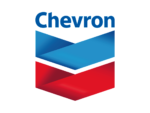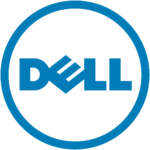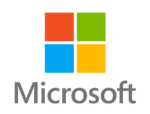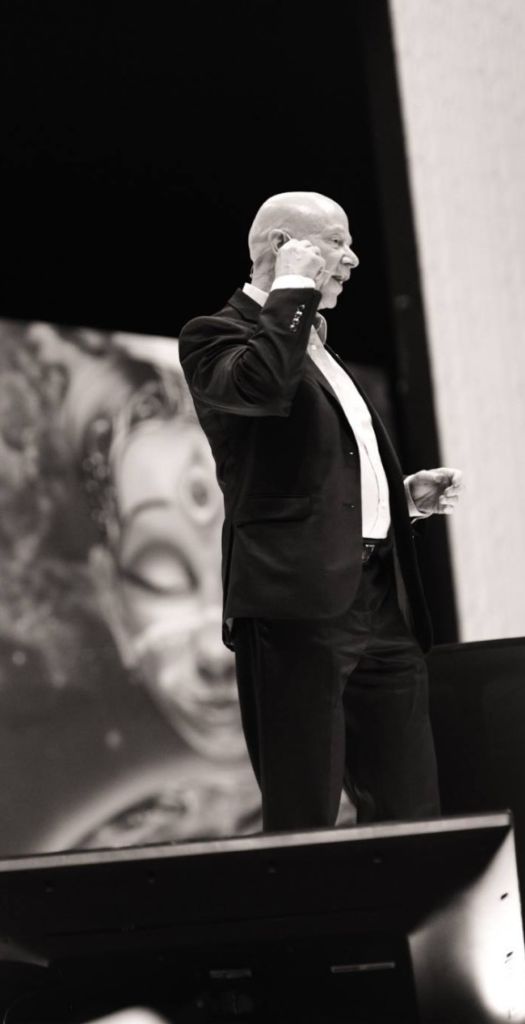
This is a power-packed special audio for you. Recently I had the honor to meet Diana Needham from Chapel Hill, North Carolina. She is a business advisor and author and wanted to ask me about success for small businesses.
We had a great time talking about many areas that can help. Today you get to enjoy both the audio and we have a transcript of the interview as well.
After you’ve had a chance to review this, let me know what you think. I look forward to hearing from you and getting your comments. You can leave me a message on Twitter – @TerryBrock is my handle there.
You can find out more about Diana and the services she offers at:
http://www.linkedin.com/in/diananeedham
I look forward to hearing from you.
Terry
Terry Brock, MBA, CSP, CPAE
www.TerryBrock.com, @TerryBrock, http://www.Facebook.com/MarketerTerryBrock
Social Media for Entrepreneurs
Intro
Terry is the former editor in chief of AT&T’s massive blog and the former Chief Enterprise Blogger for Skype. He works with organizations to achieve their best increasing sales and profitability, using a variety of social media platforms (video, audio, Blogging, Twitter, Facebook, LinkedIn, YouTube and more) to build their marketing and help the achieve business goals.??Terry is a professional speaker and a member of the Professional Speakers Hall of Fame
Questions
Why is using social media important for entrepreneurs?
Diana: You probably have some of the same experiences that I do, as I work entrepreneurs, or I’m mapping out simple marketing strategies that work to enable them to grow their business. There seems to be a lot of confusion around the use of social media.
[00:02:18] Terry: Well, today, it’s where people hang out. See, if we were doing business back in 1820 or say, 1730, or 1640 – whatever time in history – you want to find out where people hang out. Where do your customers hang out? Whether it’s at the local pub or the saloon back then, or the general store. Today, people hang out around social media – Facebook, Twitter, LinkedIn, YouTube – these are some of the biggies. And so, you wanna be where they are, and the real advantage today, is that now, it’s no longer limited to geography.
Geography has kind of been dissolved, and, like you and I were talking about before we started doing the recording, you were working today, Diana, with some folks over in the UK; I did a presentation last Friday to the UK, to a bunch of Fellows of the Professional Speaking Association over in the UK – like some of the best of the best, and I’m talking to them, we’re having a great time. And I made sure that we tried to behave relatively well, so that you’ll notice, we did not have nuclear war between the US and the UK – and well, I think the facts pretty much speak for themselves there.
Diana: Yeah, well great. And, you know, one of the things that I actually teach is how to leverage LinkedIn to grow your business. In fact, I’m doing a presentation locally here tomorrow around that, and the fact that, LinkedIn is now at almost 200 million users across 200 countries – is just an amazing thing, because if your product or service can be marketed to any English-speaking country, and it doesn’t have to be physically delivered locally, LinkedIn is certainly one option for entrepreneurs to consider.
Terry: You know, absolutely. And one thing I really love about LinkedIn is, each platform has its own unique personality, and pros and cons. I love LinkedIn as a place where people come together, and they are serious, it’s about business. You don’t put pictures of your cat and your pictures of your dog or this or that. It’s nice, I guess, as far as human relations, but this is about business. People are there because they want to exchange leads, they want to get good information, and they don’t want someone being real pushy and salesy – and so, I think LinkedIn has real advantages, if you go in the right way. I look at it kinda like, being a member of a very prestigious country club – you go in there and you interface with people, you provide a lot of value, and the last thing you do would be, go in to say, “Hi, I’m wonderful. Here’s my brochures. Buy my stuff.” You do that, and they’ll throw you out on your ear. And they should. With LinkedIn, it’s the same thing.
Diana: When I teach LinkedIn and people are confused about Twitter, Facebook, and LinkedIn, I actually use this analogy, and you may have heard this: when you’re on Twitter, you are at the water fountain, right? Sort of our on the playground, you’re at the water fountain, it’s short, little gulps of water, and you’re off and running again – you know, what is it, 40 characters. When you step onto Facebook, you’re at the cocktail party. People are mingling, they’re sharing pictures or talking about their vacation, they’re airing their views, they’re talking about the news – all sorts of things go, and Facebook is much more social. When we talk about LinkedIn, I ask people to think about stepping into the boardroom, and what does the last boardroom that you were in, what did it look like? And actually have people mentally kinda get in that place, so that they understand that LinkedIn is a very different environment in which to operate than the other platforms that are out there.
Terry: Yeah, exactly. Well, what would you use to describe YouTube?
Diana: Hmm. Well, it’s not exactly the movie theater. How would you describe it?
Terry: I don’t know, I’m trying to think… Because I love those analogies you have. I think it would be more like a movie theater that plays lots of different videos. Maybe it’s more like sitting in the back of a plane on a long international flight, with a whole bunch of channels that you wanna watch.
Diana: And you can choose.
Terry: Yes – oh, you get a chance to choose. I think, YouTube, the unique aspect of that, is that it’s a wonderful way to learn and to get educated. Think of the greatest authors that you like, think of the greatest people and speakers, and people who are experts in given areas. Thinks of topic you wanna learn about, type that into YouTube – which, of course, is the second-largest search engine – and you will able to get some strong education, which is very important for us today, in small business — as thought leaders as well, to stay up on top of what’s going on, and to hear it from a variety of point of views. What a great service using something like YouTube for that.
Diana: Right. Yes, it’s amazing. And actually, when I’m stumped with “how to”… I just bought a new external microphone for my video – I do some video marketing, and I bought an external microphone, and it came with no instructions. So I just sat myself down, and went to YouTube, and said, you know, “How to use” this particular model, up it popped, this guy had some great tips, and I followed it exactly, put it all together, and went off to my client the next day to shoot their video.
Terry: Isn’t that wonderful? I love it. I mean, think about it Diana – where we are today, at this point in history, I’d rather be alive today than any other time, because now, we can learn what we need to learn quickly, with just a few keystrokes, and it’s free, which is really good. And you have all of this information available; there’s really no excuse for not knowing something. And even if it’s not there, you can find somebody who knows it – like, for instance, this is where Twitter would come in. You can do a quick Tweet and say, “Hey, does anyone know how to use the such-and-such microphone?”. And you could then look at your followers, go out on Facebook and do that, LinkedIn – and send that message out quickly. And if you have a large enough base, chances are, somebody’s either gonna know how to do it, or they’ll know somebody who knows somebody who knows somebody who does.
Diana: Yes, that’s exactly that. [Go to, What are the mistakes]
What are the mistakes you see entrepreneurs make?
[inaudible 00:08:41]
Terry: Well, I would say the biggest mistake is that they think of social media much like people would think of advertising and marketing in the 1950s or the 1960s, where you would go out and you’d buy time on television, you’d buy space in the newspaper, you’d buy time on radio, and you would broadcast to everyone out there – with an old “spray and pray” kind of marketing. You know, you just spray it out there, and hope something works. Social media is completely opposite of that. It’s turn it upside-down on its head; what you’ve got to do is target, and you want to engage people, that’s the key word. Not broadcasting, but engagement, and as you engage with people, that means you’re listening to them, you’re responding to them in a helpful way – not just trying to sell your stuff.
I mean, we understand, yes, we all have to sell, we’re in business, we’ve gotta eat, and we’ve gotta pays the bills – those of us that are entrepreneurs and on our own, that’s particularly important. But the way that you do that is, you contribute value, and then inherent within that is others are understanding, yes, let’s find out about you. Let’s get to know you, and then when I have a need for your area of expertise, your products, or your services, then I’ll come to you. And I think the biggest mistake is people forget that that engagement is vitally important, and if you don’t have the engagement today with social media, you’re toast and you’ll be thrown out very quickly.
Diana: Yeah, right. That’s exactly right. So, the other thing, I think, from my experience that entrepreneurs are confused about, is there are so many choices. There are so many platforms, and when you go to presentations and you go to training, and even engaging in the local chamber, there are so many different offerings and so many different marketing ideas, that it’s difficult for a lot of entrepreneurs, when they’re trying to run a business, to really figure out which platforms make the most sense for me.
How do entrepreneurs choose wisely when it comes to marketing and social media?
[inaudible 00:10:53] Well, Diana, that’s an important question, because when you’re expending your efforts and you’re putting them into a certain area, that means you’re not going to be in another area. So I would say, it’s very important to find out where your customers live. My analogy that I use from before, if we were in the year 1640 somewhere, say in Amsterdam or Spain or somewhere, you’d find out where your customers hang out, find out what they’re doing. Well, that’s what you have to do today. Are more of your customers in Facebook? Are you in a B-to-C, business-to-consumer area? And if you are, then Facebook might make a lot of sense with another presence there in Twitter, all the time while you’re engaging. If it’s more B-to-B, then there is a place for a Facebook page, but it’s gonna be a different approach, it’ll have a different tone, and LinkedIn, of course, is gonna be important. I think if you’re in business and you want to connect with people, I tend to really like YouTube, and think that most any service or product can be video-ized – there, I’ll make up my own words – video-ized, put it out there where you can a presence on YouTube, be able to let people know what’s going on and where you’re gonna be. So start with that, work with what you know, and then gradually move from there, because there’s so many, like you said very well, Diana, that we can be inundated with it. We can be swamped. And when you think about… Oh, there’s also, by the way, Tumblr, and then Digg, and then Reddit, and then there’s new shiny object of the week and there’s always more and more coming out, and we all feel swamped. We all feel like, “Oh, my, I cannot handle all this.” But if we step back and chunk it down, look at it in bite-size chunks, do what you can, and then make a schedule. This is business, treat it like a business. Devote time to it on a daily basis. I’m writing a book right now with my partner Gina Carr on Klout, and how to raise Klout score, how to work with Klout score.
We just finished a trip out to Klout headquarters in San Francisco, and it was fun to meet with them, to meet with the top people there – their CEO and cofounder Joe Fernandez, and I found how he does it. He engages with people, but he’s telling me, doing it throughout the day – regularly going in for a few minutes here and there. And I think if you devote your time, realizing social media is very important, that will be a very good expenditure of your time, money, and effort. Put time in a regular basis, on a scheduled basis for social media, to really be involved, to be engaged – much life if, oh, say we were in the 1970s, and you wanted to work in business, being active in a local chamber of commerce or local community organizations would be important, and you would just look on your calendar and realize, “Okay, every third Saturday of the month, the such-and-such group gets together,” and you’d get together at that time; you’d block it in. Do the same thing with social media, and you’ll find you get a lot of good results.
Diana: Yep. And that’s a great tip. It is important to put systems in place, and a calendar and a schedule in place, so that you show up consistently, and that your followers and your customers know what they can expect from you.
Terry: Yeah, that consistency is one of the things that Joe Fernandez, the CEO of Klout, talked about as what’s really important to raise your Klout score to actively engage in a meaningful way – is, you want to consistently be there. If you do one tweet every other month, you’re not gonna be really effective – I mean, that just goes without saying. But you also don’t wanna be in the form where it becomes noise more than signal; you want to be able to… You wouldn’t want to send out a tweet every other minute. That’s too much, and people are going, “No, that’s too much. We want you out of here.” Instead, something that would be appropriate for your market. And each market’s gonna be a little different. Some might say, “Well, I’ll do one tweet a day.” Okay.
Some are saying, “Hey, we’re gonna do 2 or 3 or 4 a day.” Some saying doing it every hour or more, and it just depends on your market. So the only way you find that out is, any good marketer knows, you test. Keep testing, find out what people like, what works well, what people don’t like, be aware of all of that, and it’s continual reevaluation of what’s going on.
Diana: Right. Terry, you’ve mentioned a couple times the Klout score. Could you explain that, for the folks that are listening?
[inaudible 00:15:17] Terry: Yeah, sure. Klout score – that’s spelt with a K – is a way that you can digitally gauge and measure the influence that someone has in social media. So if you were to say, “Who has more influence – Speaker A or Speaker B?” and you’re looking for speakers, you can do that on a daily basis that changes every day – by going to Klout.com. And this is a factor that is arrived from 12 billion – that’s with a b – 12 billion data points on how many times people will mention you or retweet what you say on Twitter, and then how many times they will comment about you or like it on Facebook, how often is someone mentioned and forwarded on LinkedIn, what people are doing there on those platforms are important, as well as other areas, too. So they’re looking at how much influence you have in a digital way, and it will affect your income in many different fields – particularly with thought leaders. Right now, we see that movie actors are being judged not only on how they can act, but on what their digital influence is, how many people they’ll bring to the box office. And many producers and directors are hiring only those with higher Klout scores. So they’ve got actor A, B, and C, and they’re all good, hey, they wanna get as many people coming in, watching that movie, and they know that an actor who is very influential will pull more bodies into the tickets, and buy more tickets. So that’s where they’re going. We see that with authors. Authors and many publishers are looking at who has a higher Klout score as to who they’re gonna work with. We find for speakers, many meeting planners are looking at this. So it’s something that thought leaders, who are listening to this right now, need to be aware of – not be obsessed with it – but instead, look at it.
And the think I find really nice about a Klout score, is it’s not so much about the Klout score itself and where I am each day. You can become obsessed, and you shouldn’t. Instead, look at it as a way to measure what is the right thing to do as a good social media citizen. What activities do you need to do that are appropriate? What activities do you need to refrain from that are not as appropriate? And Klout is a really good way to measure that, and to find out where you ought to be and where you shouldn’t be.
Diana: Okay, well, that’s great to know. I hadn’t heard a whole lot about that, myself, so thanks for your clarification there. Terry, I know that you are a very, very busy guy. I so appreciate your time today. [Go to, How can our listeners]
How can our listeners learn more about you and your services?
[inaudible 00:17:59] Terry: Well, actually, what I would like to offer is some free material that they can get. I’ve got some videos and a lot of information that they can get on marketing and improving their marketing, over at my blog, if they go over to TerryBrock.com, and then click on the blog, they’ll see a lot of videos there, they’ll see a lot of articles that are specifically oriented toward social media, toward using technology, using portable technology, and I get a chance to tap into the brains of some amazingly brilliant and wonderful people that I interview on a regular basis. Often, I’ll review a book, and every book review that I do, I like to make sure we get a real training lesson out of it – not just, “Here’s a wonderful book. You oughta buy it,” but rather, “Here’s a book, and here’s what they said over on page 37 about this and this and this. And then over here on page 77, they said this,” etc. So they bounce over to TerryBrock.com, they’ll get that and a whole lot more.
Diana: All right, great. I have had the opportunity to go take a look at your website and watch some of the video interviews that you have there, and it’s great, great content. Well, Terry, thank you so much for your time today. I know that our listeners will get great value from the gold nuggets that you’ve shared with us today. I so appreciate it.
Terry: Well, Diana, thank you very much. It’s an honor to be with you.
Diana: All right, well, you take care, and I’m sure that you and I will be talking again soon.
Terry: Sounds good. Have a great day.
Diana: All right, bye for now.















